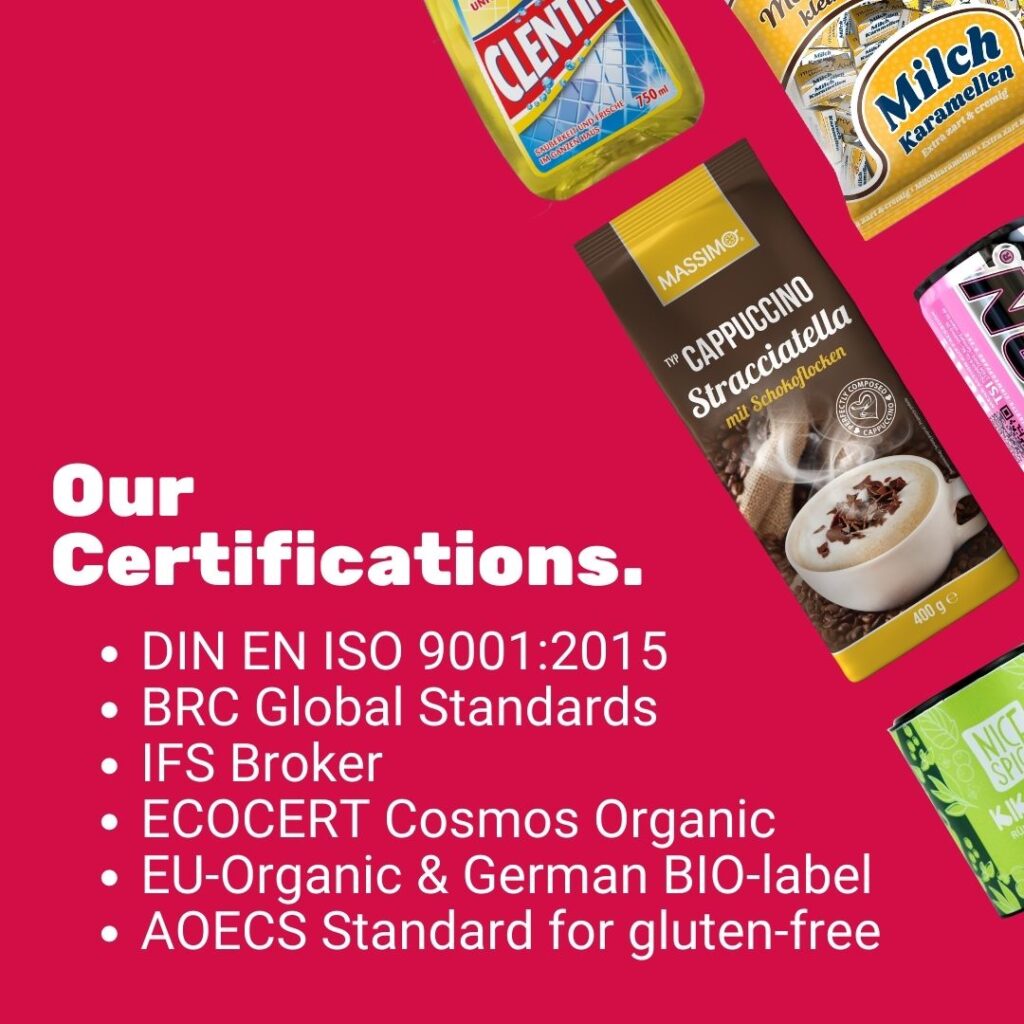The importance of standards in the food industry

A short glimpse
In our industry – food retailing – food safety requirements are constantly increasing. A general duty of care applies. Our certifications ensure that our products are of the highest possible quality and are safe.
This plays a central role for the trade, the authorities as well as for the consumer. Internationally recognised standards and certificates ensure that processes are adhered to and standardised along the entire value chain. These quality management systems thus apply to all certified companies. This ensures transparency – even beyond national borders.
Our certifications
IFS – International Featured Standards
Along with the BRC Standard (Global Standard for Food Safety), the IFS Standard is one of the most important food standards. Certified companies should ensure compliance with the corresponding requirements along the entire food supply chain. TSI is certified according to IFS Broker.
EU-Organic/ Ecological Certification
With certification, products can be marketed as “organic” and “ecological” (or “bio” or “öko”) in EU member states. An international presence in more than 130 countries makes it possible to offer certification outside the European Union, namely in “third countries” according to the Ecocert Organic Standard (EOS), which corresponds to the EU Organic Regulation.
The German organic seal as a trademarked sign can be used together with the EU organic logo for the labelling of organic food. Every product labelled with the organic seal must be registered with the Bio-Siegel Information Centre before it is marketed. In addition, it must comply with the graphic requirements of the Organic Labelling Ordinance.